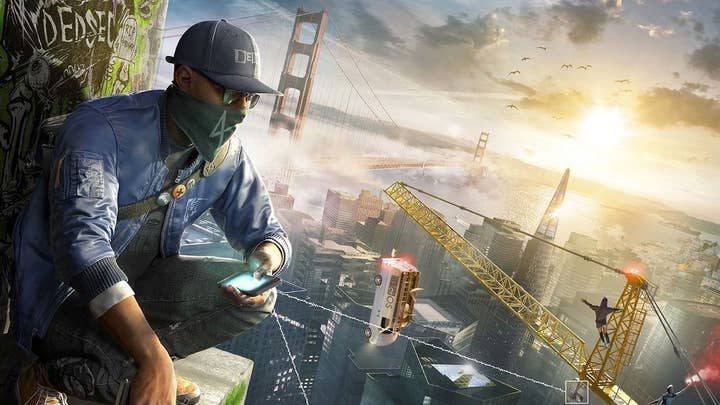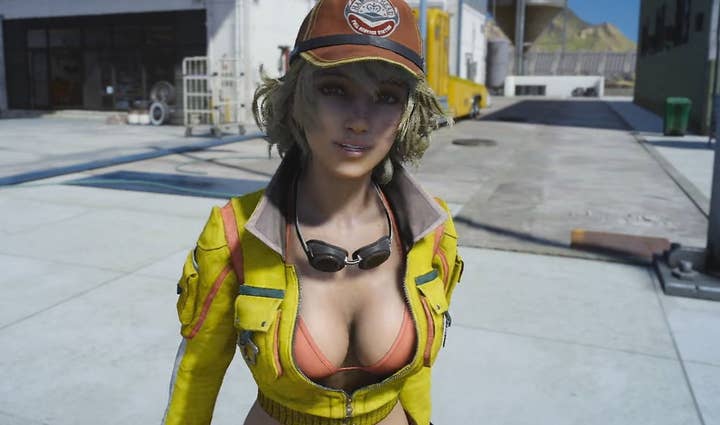Anita Sarkeesian: “Games need to tell better stories that don't oversimplify oppression”
Critic praises “cultural shift” in video game storytelling, but says recent examples are a “band-aid on a deeper wound”
Developers are becoming far better at exploring the real issues faced by marginalised groups, but Anita Sarkeesian believes there's still a lot of work to be done.
Speaking at this week's Nordic Game Conference, she noted that many titles - including AAA blockbusters - are trying to explore serious issues in a meaningful way, but are falling short due to an over-reliance on violence and combat.
Sarkeesian recently launched a new critique series following the finale of Tropes vs Women in Video Games, a project she began four years ago.

"The progress since then is not insignificant, but it shouldn't be overstated," she told attendees. "At times, it can feel like one step forwards, two steps back.
She continued: "In the four years since Tropes was launched, there's no question that a cultural shift has happened. There's now a great deal more awareness of the lack of diversity in gaming representation. In at least some game developers, conversations are happening that weren't happening before about how female characters were designed, and about what roles they can and should play in a story.
"In Assassin's Creed Syndicate, Dishonoured 2 and Overwatch, we see female characters are not only more common but also their designs don't always sexualise and objectify as many [previous games] did. In games like Watch Dogs 2, Mafia 3 and Battlefield 1, we see that men of colour are more frequently being featured in prominent playable roles.
"Of course, the shift towards a greater range of representation is to be applauded and encouraged. It's important for all kinds of people to see heroes in media who look like them, and it's important that media sometimes encourages us to empathise with and project ourselves onto people who don't look like us. All of us who aren't straight white men have plenty of experience with this - games, films and other media have often given us no choice other than to relate to a straight white male protagonist but the reverse hasn't always been true.
"It's important for all kinds of people to see heroes in media who look like them"
"By giving us a broader range of heroes to identify with, games can challenge the perception that white male is the default setting for humanity and encourage players to see humanity in all of us."
However, she added, as welcome as the shift is, she stressed that it should not be "seen as an end point". Solving this issue is not a case of "completing a diversity checklist", Sarkeesian stressed. Now that awareness has been raised and the discussions have started, she urges developers to go deeper.
This means more than just "putting women and people of colour front and centre" but also giving them stories that "recognise the systemic oppression" they often face. She observed that some games have made a good start in trying to explore issues of oppression, but don't go quite far enough when looking at how that oppression works.
The first example she gave is Assassin's Creed Syndicate, where a sub-plot about child labour attributes this oppression as the work of the nefarious Templars, which can be solved by assassinating the evil white man in charge. In reality, child labour in Victorian London took "tremendous organisation and activism to bring to an end".

Another example was Watch Dogs 2, in which protagonist Marcus Holloway - a young black man - is racially profiled and deemed a criminal risk because of his race. While Sarkeesian says it "would seem the game in some ways acknowledges the very real issue of systemic racism in American law enforcement", this corruption isn't built into the game's systems. Instead, it's blamed on the CTO of the company behind the technology that profiles Holloway - another evil white man.
"Of course stories often need villains," she acknowledges. "Characters for the heroes to struggle against and hopefully overcome, and if those villains represent some genuine evils that exist in our world then there's nothing inherently wrong with that.
"If games are going to comment on such issues, then they need to do it seriously and responsibly"
"And obviously not all games need to evolve and represent structural oppressions that exist in our world. There's plenty of games that we love that don't have any narrative like that. But if games are going to comment on such issues, then they need to do it seriously and responsibly. They need to tell better stories that don't overly simplify the real, entrenched oppressions of class, race and gender that exist in the world, or suggest that those oppressions can be overcome with a few acts of violence."
She continued: "Gameplay and graphics have become far more sophisticated [than earlier video games]. We're creating far more believable worlds, richer characterisations and more diverse rosters of playable characters - but we're not developing deeper stories to go along with this, and we need to.
"Until our narratives begin to reflect the issues that women, people of colour and other marginalised folks face, we're treating the problems as if they can be solved by checking boxes on a [diversity] checklist. We're applying a band-aid to a deeper wound - and, don't get me wrong, that band-aid is absolutely essential to addressing the issue but it's not the entire treatment."
Sarkeesian also praised Dishonored 2 for having a strong playable female character and attempting to illustrate the ways oppression is "perpetuated not only by bad people doing bad things, but also by good people becoming complacent and doing nothing". However, she says the dialogue that explores this feels like "little more than lip service" because the bulk of the game sticks to the typical story arc seen in countless other titles.
"Games like Watch Dogs 2, Dishonored 2 and so many others clearly strive to be more than mere escapism," she said. "They want to say something meaningful about our world and the lives we're living today. What they require is a more complex understanding how evil and oppression in society is actually perpetuated to go along with the richer worlds and characters."
"It's time that we actually created an industry that's more inclusive and respectful of its audience"
She suggested that the reason we've yet to see this in games is because the majority of player interactions in such titles revolve around violence and combat, which limits the type of stories you can tell. She offered 1979 Revolution, a title about the Iranian Revolution, as an example of how this can be avoided.
Sarkeesian also praised a number of indie games, such as Cart Life and Diaries of a Spaceport Janitor, for giving players a glimpse at more ordinary lives and experiences, along with the rise of indie-style AAA games such as The Last Guardian, which offer more intimate, personal stories. She also cited The Last of Us: Left Behind as a prime example of how violent game mechanics can be recontextualised to tell different types of stories, showing footage of Ellie and Riley having a water pistol fight that was mechanically identical to the gun battles of the main game.
Gone Home was another example of how developers can tell stories from different perspectives to their own, with Sarkeesian noting how much research Steve Gaynor put into said project. She also stressed that she is "obviously not saying all AAA games should become small, intimate experiences" like this.

Taking questions at the end of the sessions, Sarkeesian was confronted by an attendee that posited the oversexualised female characters she often refers to are no different to the likes of Kratos, an example the critic gave at the beginning as a typical male protagonist. The audience member argued that while Kratos is essentially naked, the notion that he is a male power fantasy is an "arbitrary argument", finishing with: "How are scantily clad women not a female power fantasy?"
"When men are shown as beefy with rippling muscles, it's not so men can oggle and sexualise them - it's so you can live this power fantasy"
After a lot of laughter from the audience, particularly the women, Sarkeesian said: "You're dismissing the answer off the bat, so I feel like you're trying to catch me on stage a little bit. The reason that Kratos is different to someone like Cindy the mechanic [from Final Fantasy XV] is that it is a power fantasy. When men are shown as beefy with rippling muscles, it's not so men can oggle and sexualise them - it's so you can live this power fantasy, so that you can be this tough guy that can beat up anyone or anything.
"That's very different to when women are sexualised in games, it's usually so that men can look at their bodies and fantasise about them. That's very, very different, and living in a patriarchy dictates that we look at men and women's bodies differently. These are not female power fantasies, because we don't really know what that means. We haven't really had space to design and develop that in a lot of meaningful ways.
She continued: "You can't ignore the history of the games industry. Women were involved in the development of games when they first came out but it became dominated by men, and then all of a sudden it started to be marketed to boys. Remember the PlayStation ad where the boy locks his girlfriend in the closet because he's playing with Lara Croft? This type of marketing was specifically targeting a limited demographic of 18 to 35-year-old men. The games were developed for that audience.
"I don't really need to prove this because you can look at my video series where we look at the entire history of the way women are represented, and it's not good. You don't [often] have female protagonists, and when you do they're usually highly sexualised because, again, they're designed for this male audience.
"Women play a lot of games. That is an undisputed fact, and women are trying to break into the games industry, and we're trying to say 'hey, start making games that are inclusive for everyone'. Women just suck it up and play these games because we love playing them to. But it's time that we actually created an industry that's more inclusive and respectful of its audience."
GamesIndustry.biz is official media partner for Nordic Game Conference 2017.
